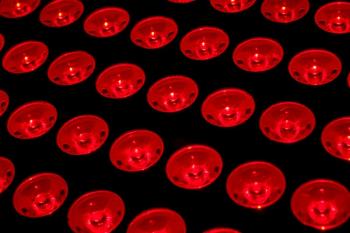
Rethink how you achieve your practice goals
Rather than simply limiting my thought process to overcoming obstacles, I have expanded my thought process to include the systems that go hand in hand with achieving my goals.
Remember our discussion last month with regard to
Related: mastering our optometric obstacles
Goals vs. systems
Consider the difference between goals and systems.
A goal is an observable and measurable desired end result with a timeframe in which to achieve it. The goal most optometrists have is to build a successful practice.
A system is a set of principles or procedures through which a task is completed. An optometric system includes the process of exams, marketing, instrumentation, operations, etc.
Now, here is a question that I pose to stimulate your thought process: If you completely ignored your goals and focused only on your systems, would you still get your desired results?
For example, if you were a NFL football coach and you ignored your goal to win a Super Bowl Championship and focused only on what your team does at practice each day, would you still get results?
Yes, I believe you would. As a matter of fact, I think that this is the only way a team can achieve a championship. By concentrating only on the success of each and every day can one hope to achieve greatness.
Focus on the systems
There are obviously some special cases in which goals are useful. When you planned to become a doctor, for example, you had to achieve specific objectives within a fixed time frame. But now that you have your doctorate, your specific objectives may be defined differently.
Let’s look at the advantages of focusing on systems instead of goals.
We all have a tendency to put the goal ahead of the means to which we will obtain that goal. This in turn puts unnecessary stress on us to succeed in business. Instead, we could keep things simple, thus reducing our stress and remaining focused on our daily process. Sticking to your schedule instead of worrying about big life-changing goals will take us to the summit of our professional aspirations in the end.
Related:
When you focus on your practice instead of your end performance, you can enjoy the present moment, and improvement will certainly follow.
Goals over the long term will not always keep you motivated. Relying too greatly on meeting a goal can create a type of seesaw effect in which one may go back and forth.
This cycle of working on a goal or not working on a goal can impede one from long-term progress. Utilizing systems-based thinking is about sticking to the process. And that is why I think systems are more valuable than goals.
Although long-term goals cannot be ignored, the underlying processes to achieve those goals far outweigh the individual goal itself.
Although we cannot prognosticate the future, every time we set a goal, we are essentially trying to do just that. We try to plan out where we will be at a given time and set a date as to when we will make it there. We try to predict how quickly progress can be made even though we have no idea what circumstances or situations will arise along the way.
Don’t try to predict the future
Instead of trying to predict the future, try using a feedback loop. Every Saturday, I spend 10 minutes filling out a small template spreadsheet with the most critical metrics for my business. Feedback loops are important for building viable systems because they allow you to track the key indicators of your business without feeling the pressure to predict what will actually happen.
Forget about predicting the future. Instead, build a system that can signal when adjustment to your process are necessary.
The problem I have with goals is the limitations that may arise with them. Granted, if you focus on one particular goal, the chances of achieving it are better than if you have no goal at all. But to be too consumed with achieving a goal means you may miss out on opportunities divergent from your end goal that may offer more in the grand scheme of things.
Systems, however, simply keep you on track and increase your odds of having a viable and sustainable practice. With a system, you are less likely to miss opportunities because you were too focused on an individual aim. With a system, you are always open to any and all new opportunities.
Newsletter
Want more insights like this? Subscribe to Optometry Times and get clinical pearls and practice tips delivered straight to your inbox.




























